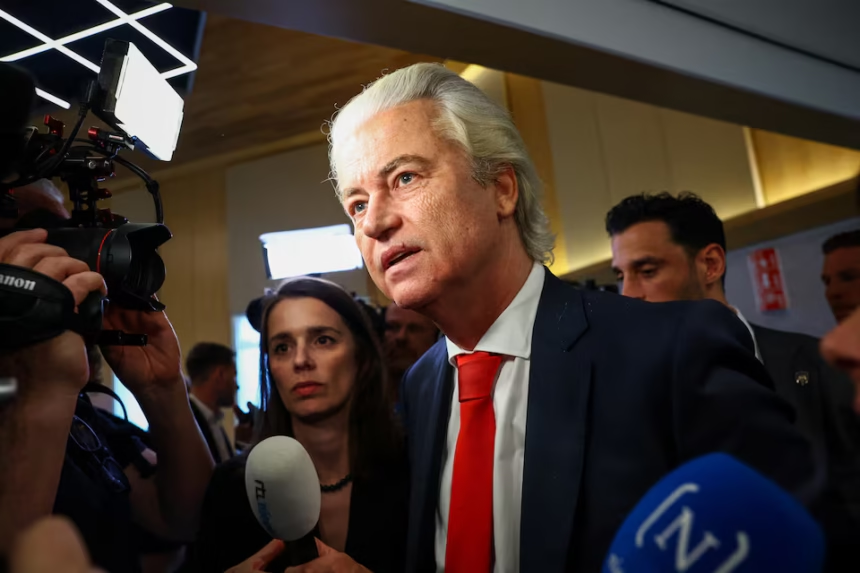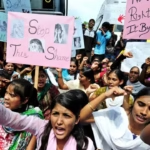HAGUE – The Dutch government has collapsed after Geert Wilders’ Party for Freedom (PVV) walked out of the coalition, ending Prime Minister Dick Schoof’s time in office after less than a year.
The split, driven by an ongoing dispute over migration policy, has sparked snap elections expected to focus on how the Netherlands handles immigration. This sudden change also exposes growing social tensions and economic pressures made worse by strict climate goals.
Wilders, known for his strong views on immigration and Islam, announced on X that the PVV was quitting after coalition partners refused to back his 10-point plan to tighten migration rules. He wrote, “No signature for our asylum plans.
No changes to the Main Outline Agreement. PVV leaves the coalition.” The VVD, NSC, and BBB all turned down proposals such as closing the borders to asylum seekers, deporting Syrian refugees, and stripping Dutch citizenship from some dual nationals. Critics said these ideas could break European human rights rules and the UN Convention on Refugees.
Prime Minister Schoof, a former intelligence official brought in as a neutral leader, called Wilders’ decision “unnecessary and irresponsible” during a live statement after an emergency meeting.
He handed his resignation to King Willem-Alexander but will stay on as caretaker until the elections, which most expect in October. The timing is awkward, with the Netherlands due to hold a NATO summit later this month, leaving the country in a temporary state both at home and abroad.
Immigration: A Long-Standing Point of Conflict
Immigration has always been a divisive issue in Dutch politics. Wilders’ move highlights how sensitive the topic remains. After the PVV’s big win in the 2023 election, gaining 23% of the vote, public debate over migration, housing, and healthcare has only grown.
Although asylum numbers have dropped since 2022, with Eurostat reporting 1.9 first-time applications per 1,000 people in 2024 (below the EU average), the mood on the street remains tense. Wilders has built support by talking about the effects of migration on local culture and the economy, arguments that appeal to many, especially young voters who feel let down by older parties.
Disputes over migration have toppled Dutch governments before. Mark Rutte’s cabinet fell over similar arguments in 2023, which helped Wilders increase his support. Many blame the coalition’s failure to keep its pledge of the “strictest asylum policy ever” on both internal splits and legal barriers.
The Council of State called a PVV migration law “sloppily drafted” and questioned its legality, adding fuel to the fire. Leiden University’s Simon Otjes said, “Wilders is hoping the next election will be about immigration. He thinks voters will back him for taking a tough stance.”
Dutch Economic Pressures and Green Policy Disputes
This crisis comes with the Dutch economy under strain. Growth is slow at 1.5% this year, according to the Dutch central bank, and inflation was at 4.1% in April. The coalition’s ambitious climate measures, started under Rutte, have come under attack for hurting farmers and businesses.
The BBB, which speaks for the farming sector, has resisted EU nitrogen rules and the end of fossil fuel subsidies, saying these changes threaten jobs. Wilders’ PVV wanted to water down climate targets, but the other parties stuck to current policies, making talks even harder.
Sandra Phlippen, chief economist at ABN AMRO, pointed out the coalition made “barely any concrete plans” during its short run, which limits the immediate economic impact of the collapse. Still, more political uncertainty could add to pressures from rising prices and global tensions, especially with the Netherlands involved in EU and world trade.
Wilders’ history, including a conviction for remarks about Moroccans, has added to cultural and racial divides. His 10-point plan, suggesting a ban on refugee family reunification and closing asylum centres, has been accused of fuelling social unrest.
There have been recent clashes in Amsterdam involving local and Israeli football fans, with Wilders blaming Arab and Muslim migrants. NSC’s Nora Achahbar quit her cabinet job in November 2024, citing racist comments from colleagues, which exposed more rifts within both the government and society.
Looking Ahead to the Dutch Election
Current polls put the PVV and the Labour/Green alliance led by Frans Timmermans neck and neck, both around 20%. Wilders now says he wants to be the next prime minister, hoping voter anger will work in his favour.
However, his support has dipped since 2023, which could make his gamble risky. VVD leader Dilan Yesilgoz said, “Voters may see this as Wilders putting himself before the country,” calling his move “super irresponsible.” BBB’s Caroline van der Plas warned that Wilders’ decision could “hand the Netherlands to the left.”
Opposition leader Timmermans is promising a calmer approach and sees a chance to bring back stability. But with far-right parties growing across Europe, as seen in Poland’s recent presidential vote, migration will remain front and centre in the campaign. Joep van Lit, a researcher at Radboud University, commented, “Wilders has made every election about identity, but it’s not clear if voters will back him or blame him for this chaos.”
As the country prepares for another heated campaign, the fall of Schoof’s government shows how hard it is to balance tough demands from populist parties with the need to work together. With migration, the economy, and climate policy all divisive topics, the next election will shape both the Netherlands and Europe’s wider response to similar challenges.














